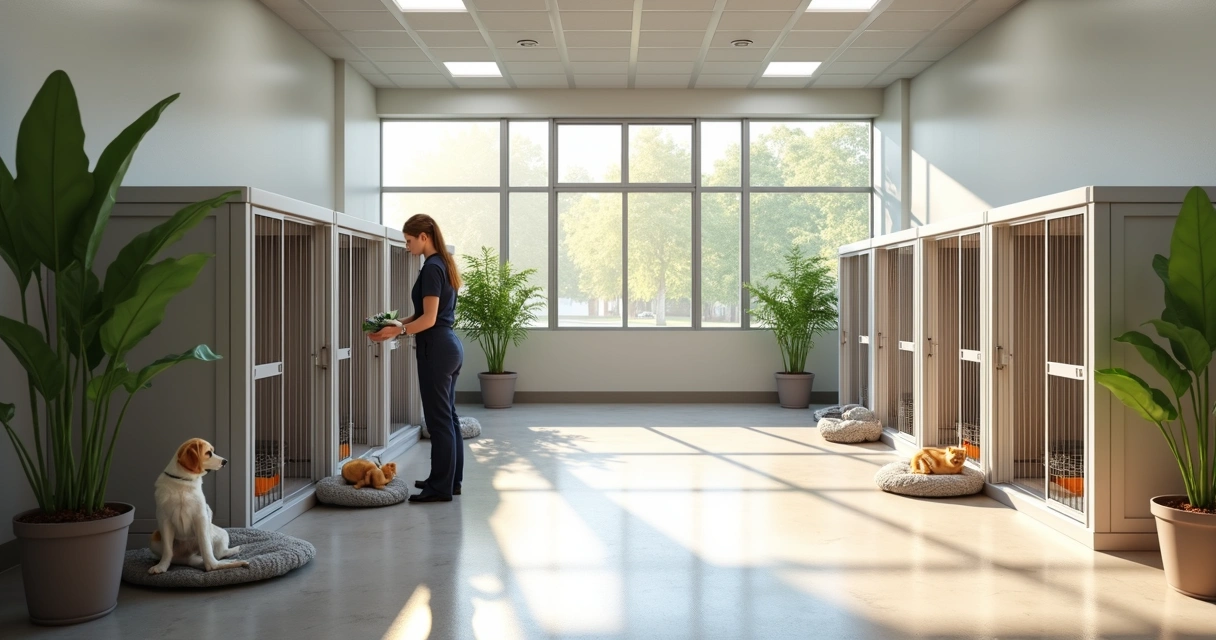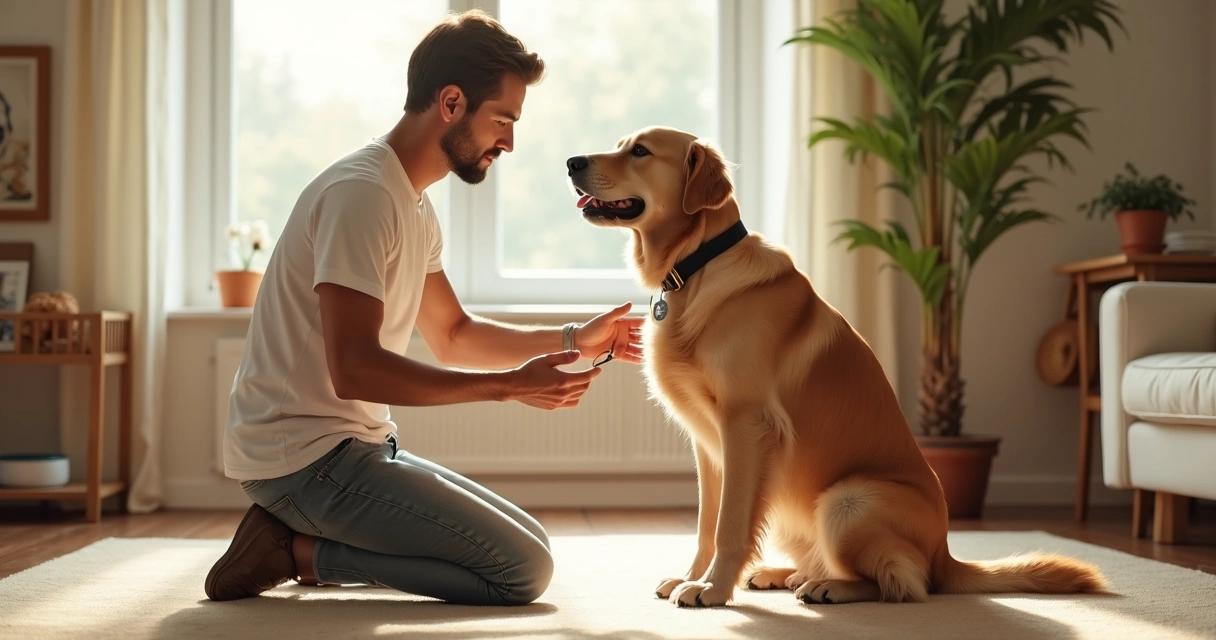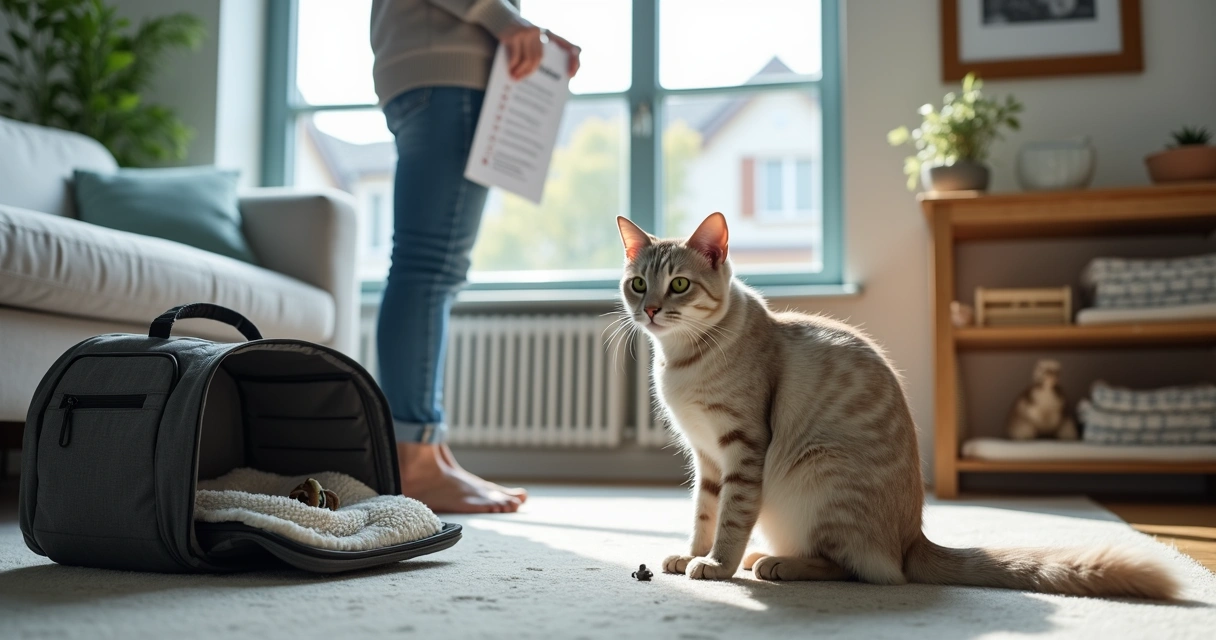Leaving your pets behind, even for a little while, is rarely easy. You want to make sure they're happy, safe, and truly cared for—not just watched. Whether you choose a local facility like Dogtown in Gloucester, MA, or another pet care service, a few checks can help you feel confident that your furry family members are in good hands. What follows are the top six things to check before saying goodbye, offering genuine peace of mind for both you and your pet.
1. up-to-date vaccinations and parasite checks
Every responsible pet owner knows that vaccinations are important. But did you know they can be the difference between a healthy trip and a potentially dangerous experience for your pet? The Centers for Disease Control and Prevention (CDC) recommends that pets boarding with other animals be screened regularly for enteric parasites, be free of external parasites like fleas and ticks, and have no open wounds or contagious skin conditions.
- Dogs should be vaccinated for rabies, distemper, parvovirus, and Bordetella (kennel cough).
- Cats should have rabies and feline distemper (FVRCP) vaccines, and sometimes feline leukemia depending on the facility.
In addition, a veterinarian should check your pet for internal and external parasites. Healthy skin, no open wounds, and a glossy coat are signs your pet is good to go. For the times when you need a thorough clean before boarding, professional grooming services like those at Dogtown can be helpful.
“Health comes first when pets mingle.”
If you're unsure about which vaccines are absolutely necessary, your local boarding provider should give you a clear checklist. Ask for documentation ahead of time—do not leave it until the day before your trip.
2. behavioral and temperament assessment
Not all pets mix well. Some love everyone. Others… prefer their own space. Good boarding centers should offer or require a behavioral assessment before your pet stays overnight. For example, Dogtown insists on a free pre-enrollment assessment to understand each animal’s temperament. This check helps staff match pets to groups where they’ll feel calm, secure, and unthreatened, reducing the risk of scuffles or stress.
During the assessment, trained staff watch for common issues:
- Is your pet anxious or shy around strangers or animals?
- Do they have tendencies to guard toys, food, or beds?
- Can they handle brief separations without distress?
This step is not about exclusion—it's about protecting all the animals, as well as staff. If you think your dog or cat may struggle in group settings, consider a provider who offers private boarding, specialized training, or smaller playgroups.
3. clean and secure facility standards

Even spotless websites can hide less-than-ideal real-life conditions. Before booking, ask for a facility tour. Details matter far more than you might expect.
- Floors and bedding should be freshly cleaned, with no lingering odors.
- Air vents and windows must offer good ventilation—stuffy air can mean illness passes around faster.
- Cages or rooms should be escape-proof and without sharp edges.
- Food and water bowls should look well-scrubbed and not just “rinsed.”
At Dogtown, pets play in small, supervised groups based on their size and personality, helping keep interactions stress-free. This level of attention gives owners peace of mind that their dog or cat isn’t simply a number. Look for these little comforts during your walkthrough, and pay attention to the staff’s attitude—they should be warm, patient, and happy to answer questions.
“Where your pet sleeps and plays matters more than you think.”
4. emergency and health protocols
It's never fun to imagine, but emergencies can happen. You want to know your pet will be cared for if something goes wrong. Ask the facility:
- Is there an on-call or visiting veterinarian?
- How are emergencies handled, both medical and behavioral?
- Will I be contacted right away, or only for bigger issues?
Your pet’s boarding form should include details about medications, allergies, triggers, and your emergency contacts. Facilities should also keep careful notes on your preferences—feeding, walks, and playtime should all reflect your pet’s usual routine as much as possible. The CDC also recommends microchipping your pet and ensuring their contact details are up to date, just in case of separation.
5. socialization and daily activity
Pets aren’t just sitting around while you’re gone. Socialization is a key ingredient for wellness—dogs and cats need both play and quiet time in a balanced way. Ask about the daily activity schedule:
- How much outdoor (or supervised indoor) exercise is provided?
- Are there options for one-on-one time or quiet rooms for shy pets?
- Is there mental enrichment, like toys, puzzles, or training activities?
For example, at Dogtown’s dog daycare and cat care, animals enjoy structured group play in spacious areas, with trained supervisors who offer plenty of cuddles and games. Up-to-date daily feedback helps you know that your pet is safe and happy. If a provider can’t show you what a typical day looks like, think twice.
“A tired pet is a happy pet.”
6. clear feedback and communication

Last but never least—how will you know how your pet is really doing? Reliable boarding facilities provide daily communication with pet parents. This can include text updates, photos, or even quick calls if something unusual comes up. At Dogtown, staff offer regular updates and quick feedback, giving owners something to look forward to when they miss their furry companions. Simply seeing your cat sleeping on a cozy blanket or your dog grinning after group play can make all the difference.
If communication feels one-sided, or you keep waiting days for a reply, this is a red flag. Trust is built through honesty and transparency—never settle for less.
Final thoughts: your peace of mind comes first
Finding a trusted place for your dog or cat isn’t just a practical decision—it’s deeply personal. You want your pet to return with a wagging tail, a gentle purr, or even just that satisfied nap look. By following these six checks, you give yourself the best chance. And if you’re in the Gloucester area, Dogtown offers that rare mix of warmth, skill, cleanliness, and daily care you’d hope for in a pet boarding experience. Want to learn more or schedule your pet’s free assessment? Visit the Dogtown boarding information or see what day camp is all about—discover how good it feels to know your furry friend is in good hands.
Frequently asked questions
What is pet boarding?
Pet boarding means leaving your dog or cat in a professional facility while you travel, remodel your home, or handle life’s interruptions. Facilities provide food, water, shelter, playtime, and supervision, either in shared spaces or individual suites. It’s much more than just kenneling; modern boarding often includes social activities, training, and sometimes grooming or medical care as well.
How to choose a safe pet boarding?
Start by touring the facility and meeting the staff. Confirm that pets are grouped by size and temperament and that the facility is clean, well-ventilated, and escape-proof. Ask about emergency protocols and review daily activities provided. Facilities like Dogtown offer pre-enrollment assessments and regular updates, ensuring both safety and comfort for every pet.
What vaccination does my pet need?
Dogs need core vaccines like rabies, distemper, parvovirus, and Bordetella; cats need rabies and feline distemper (FVRCP), and sometimes feline leukemia. Always ask your veterinarian and verify with your boarding facility. The CDC recommends pets be fully vaccinated and checked for parasites before being boarded.
How much does pet boarding cost?
Prices depend on region, pet size, services needed, and facility type. Boarding for cats can cost less than for dogs, and extras like play sessions or grooming can increase the fee. It’s best to ask your chosen facility for a complete price list and package information. While costs vary, quality of care should always come first.
What should I pack for my pet?
Pack your pet’s regular food, any medication with clear instructions, a favorite toy or blanket for comfort, updated vaccination records, and an emergency contact list. Many facilities also accept special treats, but check with the team first regarding what’s allowed. Keep it simple, but make sure all your pet’s basic needs are covered.





